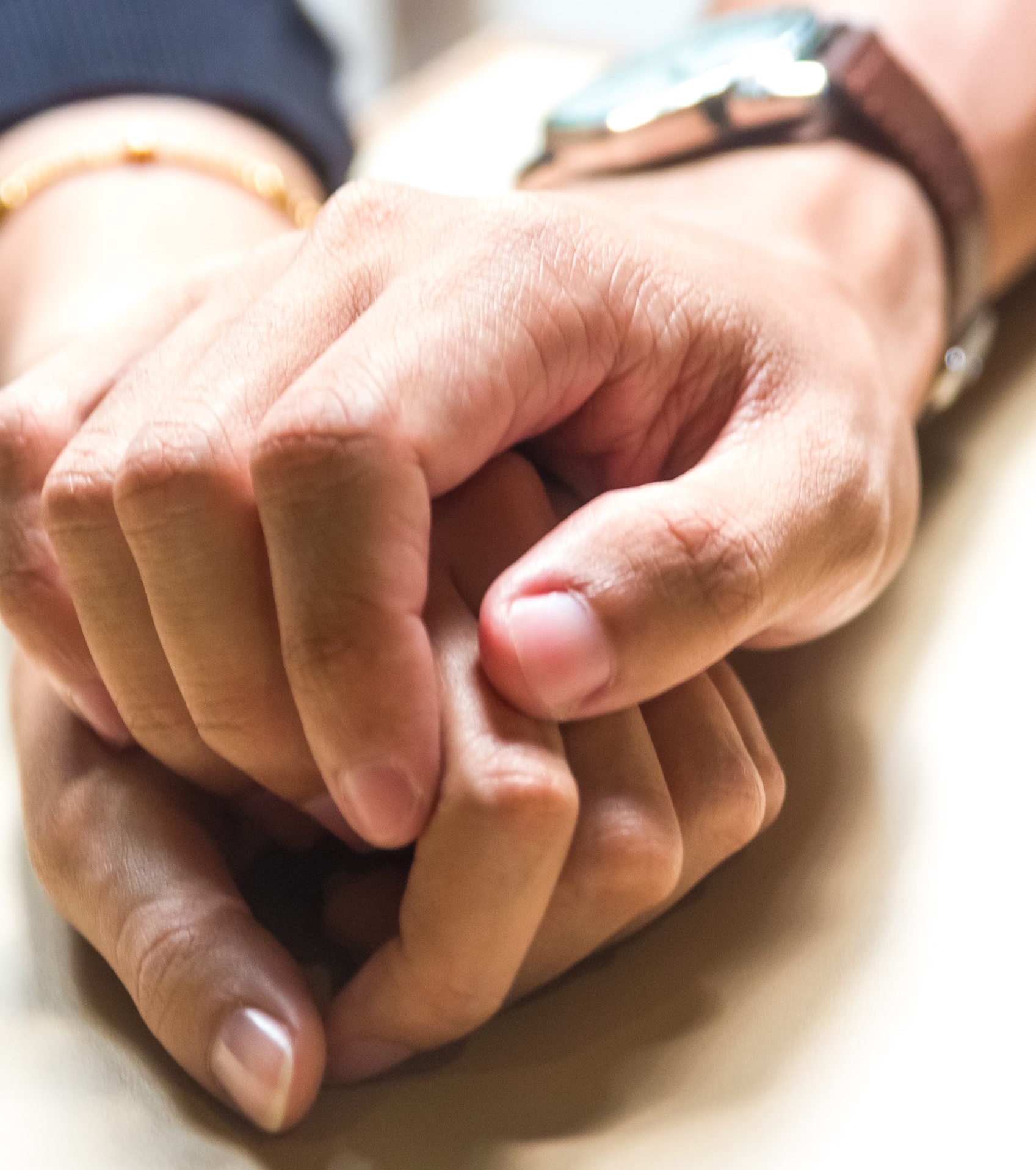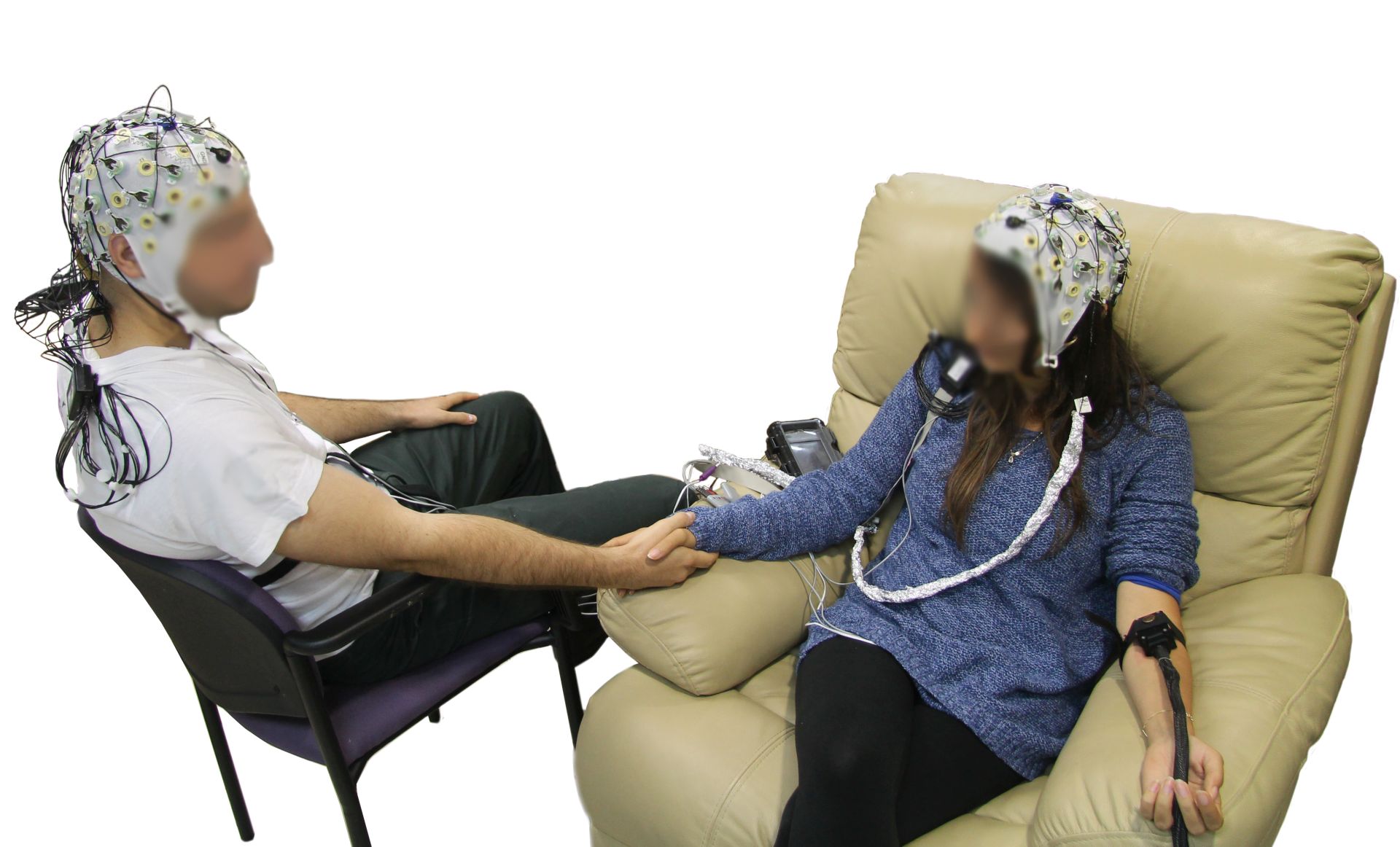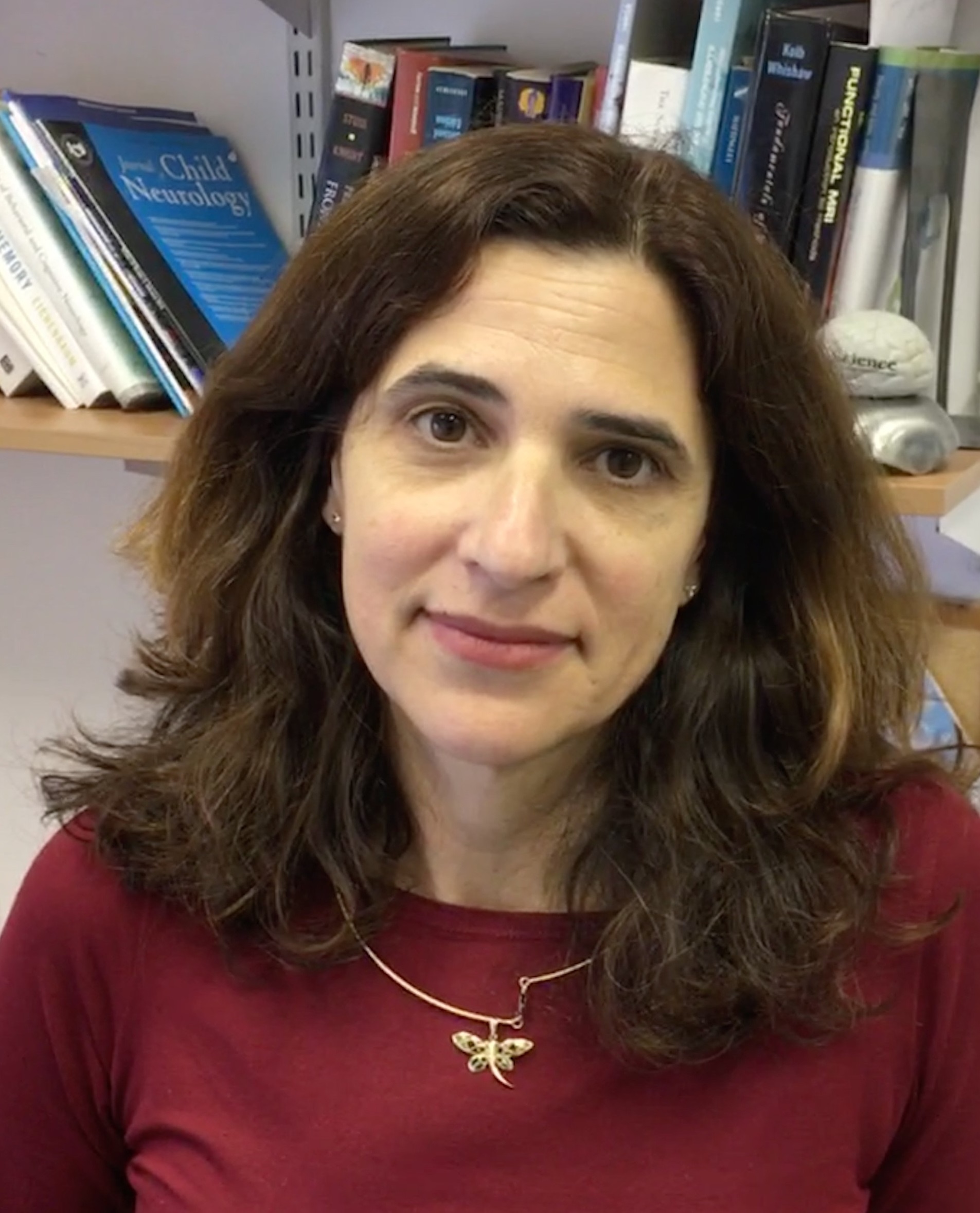
Researchers may have unlocked
the connection between empathy
and pain in our brains.
A study, led by Prof. Simone Shamay-Tsoory of the Department of Psychology, suggests that people in a romantic relationship may be able to relieve physical pain through touch and empathy. This research is making a unique contribution to our understanding of the neurological processes of empathy and the physiological mechanisms of brainwave synchrony and pain perception.

“Twenty romantically involved couples in a long-term relationship (over one year) participated in the study,” explains Shamay-Tsoory. “We wantedto gain a better understanding of how empathy works in our brain in real-life interactions.” As part of the experiment, the female partners experienced pain while their male partners sat beside them, at times touching their hand.

Prof. Simone Shamay-Tsoory
Head of the Social and Affective
Neuroscience (SANS) Laboratory
Department of Psychology
Working with pain expert, Prof. Irit Weissman-Fogel of the Department of Physical Therapy and researchers at the University of Colorado in Boulder, the research team was able to map two distinct neural networks that mediate emotional aspects of empathy behaviors in the brain, using functional magnetic resonance imaging (fMRI), electroencephalography (EEG) recordings, and other tracking devices. According to Shamay-Tsoory, “This study empirically supports the idea that touch can transfer a partner’s empathy, thereby decreasing pain. The basis of our findings can be significant to future research exploring other types of relationships, such as empathy in the context of parents and children.”
The research was identified by Globes, an Israeli business newspaper, as one of the seven most important Israeli university discoveries of 2018, and published in the prestigious PNAS (Proceedings of the National Academy of Sciences) journal.
Over 40 faculty members and some 150 students from a diverse range of fields are involved in applied and basic research that relies on utilizing fMRI technology. “We eagerly look forward to the establishment of a dedicated Center for Brain Imaging Research at the new Helmsley Health Discovery Tower that will provide scientists from the University and Rambam clinicians unlimited access to advanced fMRI equipment,” says President Ron Robin. “The Center will also serve as a training ground for MA and PhD students and as part of its activities will host conferences attracting members of the scientific community from Israel and abroad.”
Prof. Shamay-Tsoory and members of the SANS Laboratory have published novel research in collaboration with colleagues from Rambam. The studies explored neural signs of anxiety exhibited by people with autism spectrum disorder (ASD) to social touch, and on how oxytocin – known as “the love hormone” - may enhance compassion of people suffering from symptoms of post-traumatic stress disorder (PTSD).
For more information about supporting new research facilities
at the Helmsley Health Discovery Tower, please contact the
This email address is being protected from spambots. You need JavaScript enabled to view it..
Related Articles:
October 4
August 17

